Photographs: Reuters
The year 2011 has been an eventful one, full of surprises. Shankar Acharya, former chief economic adviser to the Government of India, jots down 10 unexpected political and economic developments in India and across the world this year, some of which changed the course of history.
In a column last December, I was foolhardy enough to venture some predictions about economic and political/security developments in the world and India in 2011. All told, I made 32 predictions. Looking over that list today, I find that (numerically, at least) those forecasts haven't fared too badly: 27 were correct, three were half right and two were plain wrong. Of course, the author's assessment has to be taken with a pinch of salt; a more objective reviewer might modify these numbers a bit.
Twenty-seven out of 32 might look pretty good as a forecasting record. After all 84 per cent is a pretty decent set of marks, unless you are a hapless student seeking entrance in a Delhi University college. But honesty compels me to point out that these high, self-awarded marks are very misleading. They are limited to the domain of my predictions. The real forecasting failure is that the scope of my predictions a year ago missed some of the pivotal events and trends that emerged during 2011. Let me mention ten of these.
1. The Arab spring
First, like virtually every other economic and political soothsayer, I had no inkling of the "Arab spring" that would sweep across North Africa and the Mideast after a desperate Tunisian immolated himself. Who in December 2010 could imagine that President Mubarak would be driven from office in Egypt, Gaddafi would be killed after a bitter civil war in Libya, Assad would be fighting a brutal rearguard action against his Syrian brethren to cling to power and Tunisia would have become a fledgling democracy?
...
2. The Japan tsunami and Fukushima disaster
Image: A man walks next to port area destroyed by the earthquake and tsunami in Kessenuma town, in Miyagi prefecture March 28Photographs: Reuters
Second, like everyone else, I was shocked and awed by the gigantic tsunami that hammered northeast Japan in February and triggered the disaster at the Fukushima nuclear power station. Apart from the tsunami's massive human and economic toll in the affected area, the Fukushima disaster had a far-reaching fallout on nuclear power programmes across the world.
Click on NEXT for more...
3. The killing of Osama bin Laden
Image: A man holds up a scoreboard displaying Obama - one, Osama - nil, as thousands of people celebrate in the streets at Ground Zero, the site of the World Trade Centre, waving American flags and honking horns to celebrate the death of Al Qaeda founder and leader Osama bin Laden on May 1Photographs: Getty Images
Third, the daring American helicopter raid in Abbottabad (close to a major Pakistani base) not only killed Osama bin Laden but also brought the uneasy United States-Pak alliance to a new low of mutual suspicion. (As the raid was going on, with grenades exploding, a late-night Abbottabad blogger ruefully commented, "...there goes the neighbourhood...").
The subsequent patching up of the shaky alliance has been ripped again by the recent Pakistani army casualties from the North Atlantic Treaty Organisation air strikes on a border post. Af-Pak remains a powder keg.
Click on NEXT for more...
4. Political deadlock over US fiscal policy
Image: A 'For Sale' sign is seen outside the boarded up entrance to the Central Falls Department of Parks and Recreation in Central Falls, Rhode Island August 1. Central Falls, one of a handful of US cities and counties facing fiscal collapse in the wake of the economic recession, filed for a rare Chapter 9 bankruptcyPhotographs: Reuters
Fourth, I did not foresee the severity of the political deadlock over US fiscal policy, which saw the near shutdown of the government in August, the unprecedented rating downgrade and the more recent failure to conclude an agreement on fiscal consolidation by the Congressional "supercommittee", with its potentially grave consequences for American social and military spending.
Click on NEXT for more...
5. The EU debt crisis
Image: The map of Europe is featured on the face of a two Euro coin seen in this photo illustration taken in Rome, December 3. Standard & Poor's has warned it may carry out an unprecedented mass downgrade of euro zone countries, including Germany and France, if EU leaders fail to deliver a convincing agreement on how to solve the region's debt crisisPhotographs: Reuters
Fifth, although the gravity of the European crisis was not a surprise, the prolonged descent into a full-fledged existential challenge for the euro zone was not widely anticipated. As 2011 nears its end, Europe's future still looks grimly uncertain.
Click on NEXT for more...
6. Reassertion of American presence in Indo-Pacific arena
Image: US President Barack Obama shakes hands with Australian troops while at the RAAF Base in Darwin. From next year, US troops will operate out of of Darwin to respond quickly to crisis in Southeast Asia, if anyPhotographs: Reuters
Sixth, while China's growing assertiveness in Asia and the world was presaged in my year-old forecasts, the recent, well-publicised counter-steps by America in the Indo-Pacific arena (including the fresh positioning of troops in Australia) have been something of a surprise. This well-orchestrated reassertion of American presence across the world's most critical sea-lanes has been generally welcomed by Asian countries.
Click on NEXT for more...
7. Post-polls thaw in Myanmar and Suu Kyi's decision to contest elections
Image: Pro-democracy leader Aung San Suu Kyi and US Secretary of State Hillary Clinton speak after meeting at Suu Kyi's residence in Yangon on December 2. Suu Kyi welcomed on Friday US engagement with Myanmar, saying she hoped it would set her long-isolated country on the road to democracyPhotographs: Reuters
Seventh, the loosening of the Myanmar government's tight control over political, civil and economic life in that country had begun in late 2010. The post-election thaw in the political domain, ushered in by President Thein Sein, and the recent commitment by the iconic opposition leader, Aung San Suu Kyi, to contest by-elections, have been very pleasant surprises. There are big opportunities (and risks) for India to manage in this brave new world on our eastern border.
Click on NEXT for more...
8. The Anna Hazare movement
Image: Anti-corruption crusade Anna Hazare addresses his supporters at a rally in New DelhiPhotographs: Reuters
Eighth, back in India, the Hazare phenomenon came out of the blue, was magnified by TV and was mishandled by the government, which allowed itself and Parliament to be bullied in weird and not-so-wonderful ways by Team Anna. More of this particular drama may be in store.
Click on NEXT for more...
9. The FDI storm
Image: An activist of Shiv Sena burns a pamphlet during a protest against FDI in retail sector, in Jammu on November 30Photographs: Reuters
Ninth, the continuation of India's economic policy stasis in the face of declining performance was neither hoped for nor expected. A week back it looked as if the government had broken the shackles through its announcement of Foreign Direct Investment liberalisation in multi-brand retail. Subsequent flip-flops under opportunistic pressure from the opposition, allies of the Congress and doubters within have all but extinguished that hope. Back to square minus one.
Click on NEXT for more...
10. The dysfunctional Indian political system
Image: Prime Minister Manmohan Singh and Congress General Secretary Rahul Gandhi at a public meeting in the Bundelkhand region of UPPhotographs: Reuters
Finally, I did not expect that our politics would become as dysfunctional as they now appear to be. Deeply antagonistic party politics seems to have trumped the functioning of democratic institutions, especially Parliament. Normal administration is also stymied by uncertainty, insecurity and suspicion. At the time when a fast-changing world is throwing up fresh economic and security challenges and opportunities, the Indian state seems least able to deal with them.
In last Saturday's International Herald Tribune, Suu Kyi writes about the interplay of "passion" (in the sense of commitment) and "power", and the need for both to be "mutually supportive partners" if a nation is to progress. As 2011 draws to a close, both ingredients seem to be dangerously scarce in India's polity and governance.
The author is an honorary professor at Indian Council for Research on International Economic Relations and former chief economic adviser to the Government of India.
Click on NEXT for more...

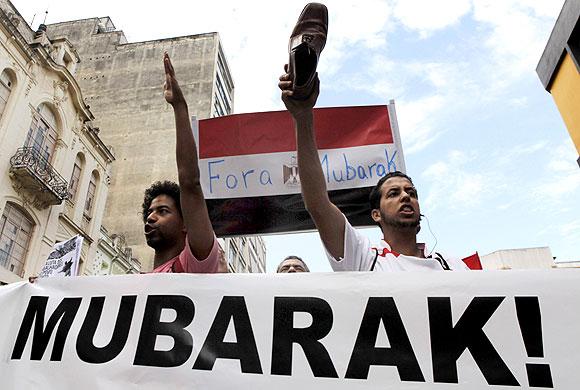


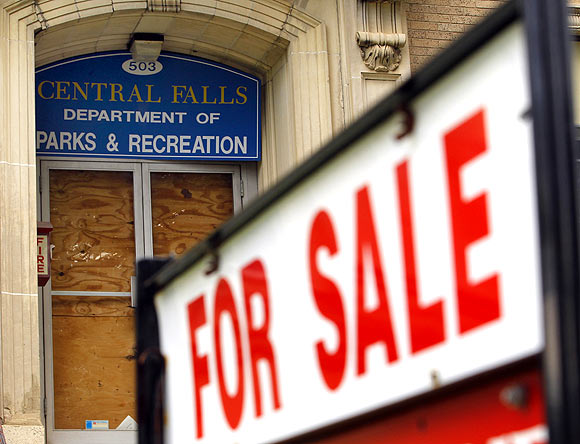

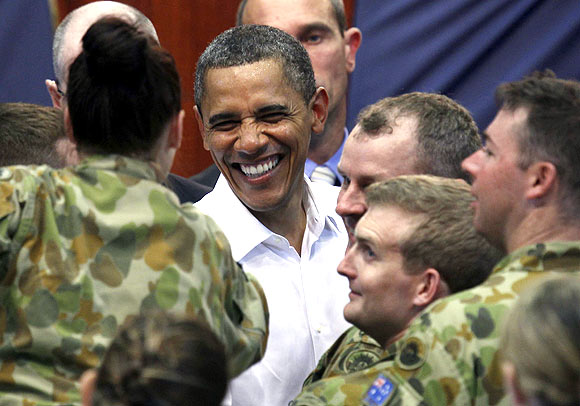
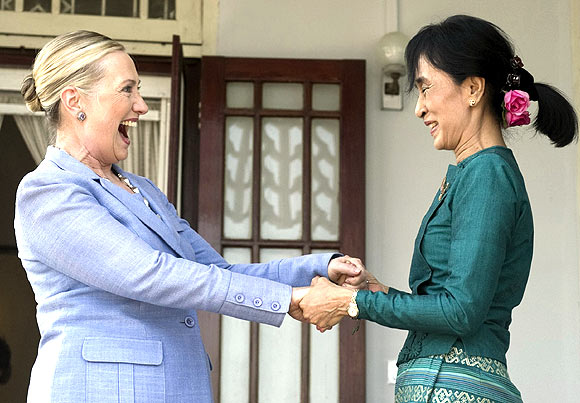
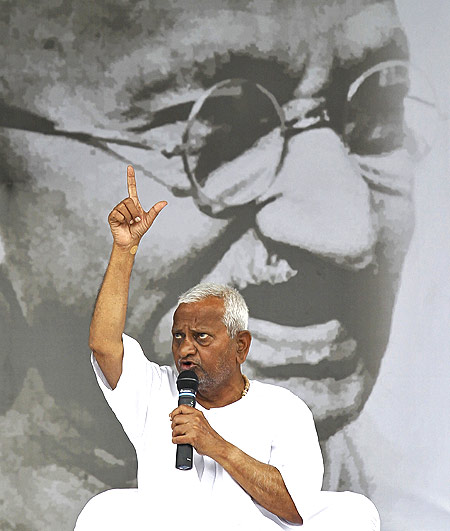
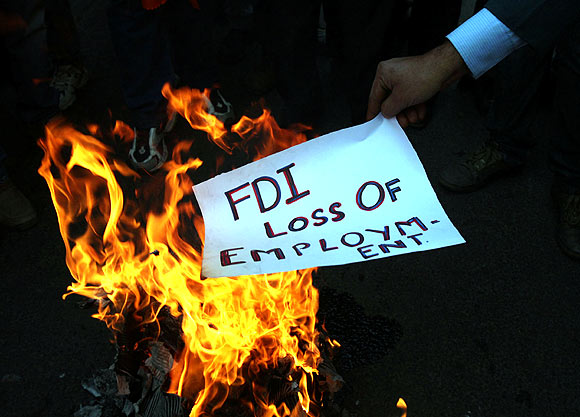
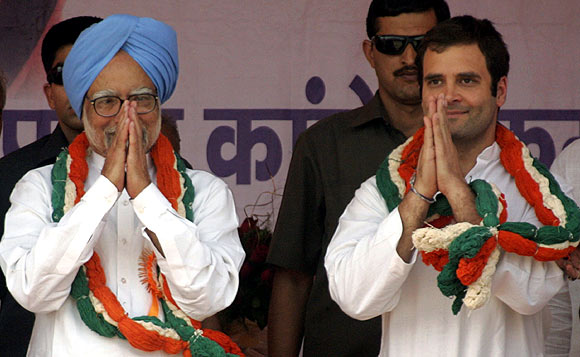

article